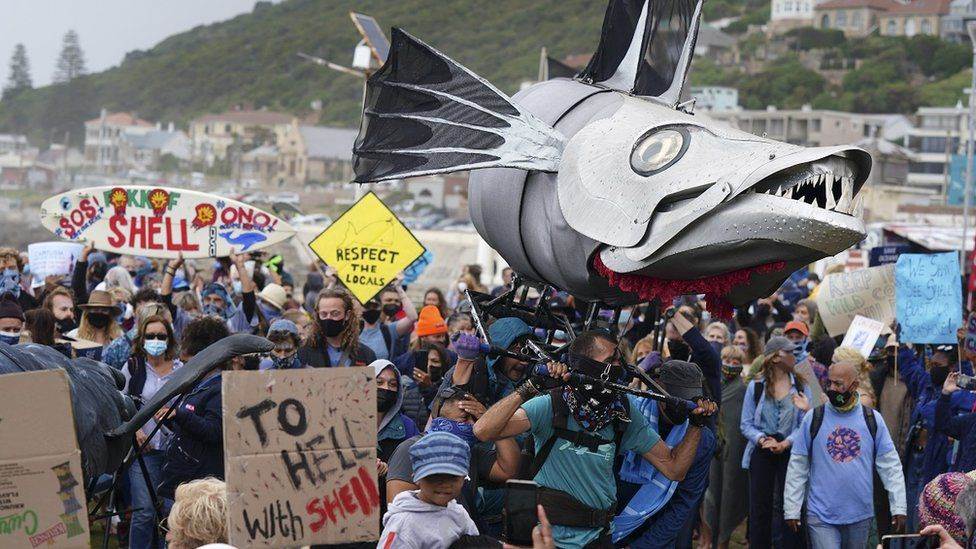South Africa court blocks Shell's oil exploration
Shell was barred from using seismic waves for the exploration of oil and gas in the Indian Ocean by a South African court on Tuesday.
-

Shell announced that it had "paused" operations while it evaluated the decision.
A South African court has halted oil giant Shell's seismic testing for oil and gas along the country's eastern coastline, pending a final ruling.
Environmentalists have applauded the decision, which they believe would protect marine life from sound blasting.
Shell announced that it had "paused" operations while it evaluated the decision.
Gwede Mantashe, South Africa's Energy Minister, has slammed the project's critics, saying they seek to deprive Africa of its energy resources.
Shell's permission to explore the waters around the Wild Coast, according to High Court Judge Gerald Bloem, "was awarded based on a substantially flawed consultation process."
It is worth noting that the 250km stretch of coastline in Eastern Cape Province is known for its natural beauty and marine life.
Many sea species, including whales, dolphins, and seals, will be harmed by the seismic testing, according to campaigners.
Local communities, who were also represented in the case, considered that their traditional land and fishing rights had been violated.
We need your help!🙏🙏
— Greenpeace Africa (@Greenpeaceafric) December 23, 2021
We’re asking you to please help us cover the legal fees for our united court action as we work with partners and support coastal communities to try and #StopShell. Together we can #SaveTheWildCoast >> https://t.co/JOoDx82hWF#ToHellWithShell pic.twitter.com/6PZGZvqYps
Environmental harm
"As coastal communities, we have relied on the sea for centuries - and we are glad that the judge has recognized that our ocean livelihoods must not be sacrificed for short-term profit," said local campaigner Nonhle Mbuthuma.
Seismic surveys are used to map what is beneath the surface of the water.
Shockwaves launched from an air pistol are blasted down to the seafloor, similar to a strong speaker. The sound that is returned reveals whether or not there is, for example, oil trapped beneath the rock.
Shell had begun surveying the 6,000-sq-km area at the beginning of December after an earlier court judgment said it could go ahead. In that case, the judge said that those who wanted to prevent the survey had not provided enough evidence to show the environmental harm.
In his judgment on Tuesday, Judge Bloem stated that experts testified about the potential harm that the tests could create and that Shell had failed to adequately counter this.
The verdict, according to Katherine Robinson of the non-governmental organization Natural Justice, is a "huge victory," but the "struggle is not over."
"This decision is just the interdict. We understand that the proceedings will continue," she was quoted by the AFP news agency as saying.
"We respect the court's decision and have paused the survey while we review the judgment," Shell said in response.

 3 Min Read
3 Min Read








